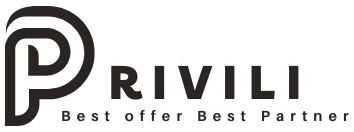
Will my position be replaced by AI tools?
Will my position be replaced by AI tools? @Victor Ching, Registered & Chartered Psychologist, Reposted from Recruit 2024 Aug
https://www.linkedin.com/feed/update/urn:li:activity:7344212331150655488
In my daily work, AI tools have become increasingly common, transforming tasks that were once tedious and time-consuming. Take certificate creation as an example—a process that used to require significant effort to ensure accuracy. Now, with just a few clicks, computers can automate the entire process, greatly enhancing efficiency.
Reflections on AI’s Impact
AI streamlines repetitive tasks but also raises questions about job security, as some roles risk becoming obsolete. As professionals, we must understand which tasks are easily automated and which are harder for AI to replace. Here are some examples:
- People-Centric Roles: Jobs like counseling or training special needs children require deep human interaction and emotional intelligence, making them harder for AI to replace. However, routine teaching tasks, such as lecturing or grading, are more susceptible to automation.
- Hands-On Roles: Tasks like construction, cleaning, or artistic creation (e.g., ceramics, sculpting) demand practical skills and creativity, which AI struggles to replicate fully.
- Spiritual and Emotional Roles: Roles in religious work or mental health therapy involve profound emotional and spiritual support, areas where AI currently falls short.
Strategies to Thrive in an AI-Driven Workplace
To stay competitive, here are 3 key strategies:
- Evaluate Your Work: Identify tasks that AI can automate and adopt AI tools to boost efficiency in areas like administrative work or data analysis. This showcases your initiative and frees up time for higher-value, creative tasks.
- Develop AI-Resistant Skills: Use the time saved by AI to cultivate skills that are harder to automate. For example, teachers can use AI to handle lesson plans or presentations, allowing more focus on specialized areas like supporting special needs students.
- Embrace Diversification: Becoming a “slash” professional—pursuing multiple skills or interests—is increasingly valuable. Exploring fields like mindfulness, sound healing, or coaching can enhance your career flexibility and create additional income streams.
Conclusion
AI brings immense convenience to the workplace but also challenges us to adapt. By assessing our roles, leveraging AI to work smarter, and developing skills that AI can’t easily replicate, we can maintain our competitive edge. Diversifying our expertise not only boosts income potential but also enriches our professional and personal lives.
I hope these insights inspire you to navigate AI’s workplace transformation with confidence, paving the way for a more successful and fulfilling career.
*Note: This article was crafted with assistance from ChatGPT, based on my ideas and a collection of my past writings to reflect my style.*
@Victor Ching
Registered Psychologist (Hong Kong Psychological Society), Chartered Psychologist (British Psychological Society).
#EmployeeExperienceOptimization #PRIVILI #Mindfulness #VictorChing #AIatWork




暫無評論